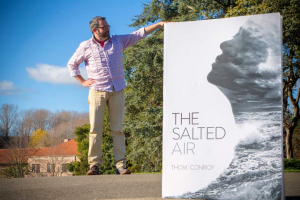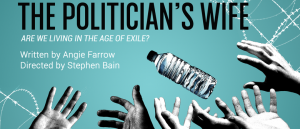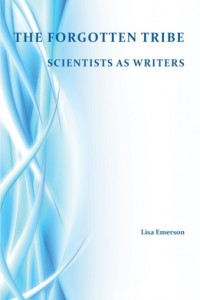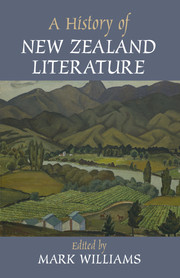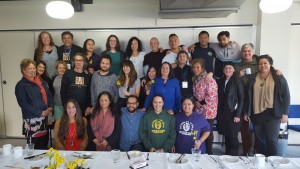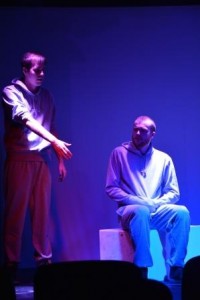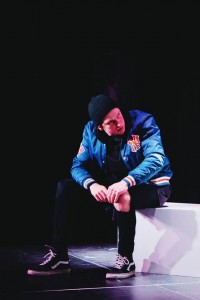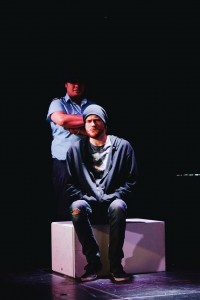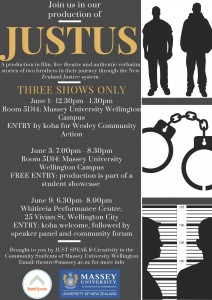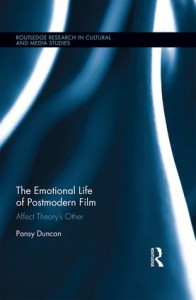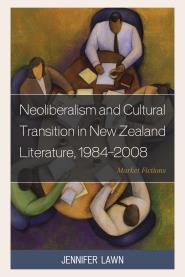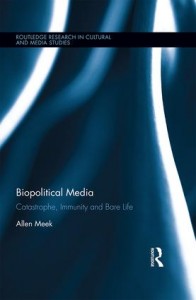Ingrid Horrocks and Harry Ricketts talk place and ‘Extraordinary Anywhere’ with @wallacelchapman on @RNZSunday: https://t.co/T4Dp5dMKGQ
Category Archives: Wellington
Launch – Extraordinary Anywhere
If you’re in Wellington next Tuesday, join us for the launch of Extraordinary Anywhere: Essays on place from Aotearoa New Zealand edited by Ingrid Horrocks and Cherie Lacey.
When: Tuesday 26 July, 6.00pm–7.30pm
Where: Unity Books, 57 Willis St, Wellington.
The launch will include short readings by essayists Tim Corballis, Lynn Jenner, Tina Makereti, Harry Ricketts and Lydia Wevers.
Research Roundup – May and June
Another 2 books, a special issue of a journal, and a play
Dr Thom Conroy had his second novel published: The Salted Air published by Random House Books New Zealand. The Salted Air was ranked in the top ten (2nd, 6th, 9th then 8th) on the Nielsen Weekly Bestsellers List during the month of June peaking at number two for the week ending 4 June.
http://sites.massey.ac.nz/expressivearts/2016/05/04/the-salted-air-a-new-novel-by-thom-conroy/
http://www.radionz.co.nz/national/programmes/standing-room-only/audio/201803396/the-salted-air
Associate Professor Angie Farrow’s full-length play The Politician’s Wife had its debut at Palmerston North’s Centrepoint Theatre mid-June and at Wellington’s BATS Theatre at the end of June. The play was shortlisted for the Adam Prize 2016, the country’s top playwriting award.
Associate Professor Lisa Emerson had a book published online: The forgotten tribe: Scientists as writers, by the WAC clearinghouse and the University Press of Colorado.
http://wac.colostate.edu/books/emerson/
Dr Kim Worthington, Dr Celina Bortolotto, Dr Allan Meek and Dr Jenny Lawn co‐edited an issue of the Australian e‐journal borderlands on the theme, ‘The Limits of Responsibility,’ and co‐wrote the introduction.
Three journal articles from English & Media Studies were included:
Lawn, J., Bortolotto, C., Worthington, K., & Meek, A. (2015). ‘The limits of responsibility’;
Meek, A. (2015). ‘Cultural trauma, biopolitics and the limits of responsibility’; and
Tutor Mr Nick Allen’s honours essay: ‘Memory Shards: A Site of Hope in post‐Apartheid South Africa’.
http://www.borderlands.net.au/issues/vol14no2.html
A number of articles and book chapters appeared by English and Media Studies Staff
Dr David Gruber had an article published: ‘Reinventing the brain, revising neurorhetorics: Phenomenological networks contesting neurobiological interpretations’, in Rhetoric Review 35(3): 239-253.
http://www.tandfonline.com/doi/pdf/10.1080/07350198.2016.1179004
Dr Ingrid Horrocks and Dr Philip Steer had a book chapters published in A History of New Zealand Literature, ed. Mark Williams (Cambridge: Cambridge University Press, 2016).
Horrocks, I. Chapter One: ‘A World of Waters: Imagining, Voyaging, Embarkation.’
Steer, P. Chapter Six: ‘Colonial ecologies: Guthrie-Smith’s Tutira and writing in the settled environment.’
Dr Ingrid Horrocks had an article and accompanying interview published: ‘Something else is going on, an interaction, an exchange: Martin Edmond’s Painted Lives,’ in Biography: An Interdisciplinary Quarterly 38.3 (Summer 2015): 491‐511.
https://uhpjournals.wordpress.com/tag/ingrid-horrocks/
More Creative Outputs and Recognitions
Associate Professor Angie Farrow’s play: ‘The Real Thing’, was performed at the Inspirato International Theatre Festival in Toronto in early June.
Associate Professor Bryan Walpert: had three poems published in the literary journal Ika 4, edited by Anne Kennedy; and gave an invited reading of his work at the Ika launch in Auckland on 14 May.
Associate Professor Bryan Walpert, School of English and Media Studies, was invited to join the Academy of New Zealand Literature.
A new short play addressing climate change by Associate Professor Elspeth Tilley, School of English and Media Studies, called ‘Waiting for Go’, was shortlisted at the Short and Sweet play festivals in both Brisbane and Canberra during June. Each festival receives several hundred entries, with only the top 10% shortlisted.
Staff gave presentations and talks both local and international
Dr Pansy Duncan presented: ‘Exploding the Frame’, at the ‘Popular Culture Association of Australia and New Zealand’ conference, Sydney, Australia, 29 June – 1 July.
Dr David Gruber presented: ‘Suasive Speech: A Stronger Defense of Rhetoric and Futures for Cognitive Poetics’, at the ‘Cognitive Futures in the Humanities’ Conference’, Helsinki, Finland, 13-15 June.
Dr Rand Hazou presented: ‘Presenting the Theatrical Past: Interplays of Artefacts, Discourses and Practices’, at the International Federation of Theatre conference in Stockholm, Sweden, 13-17 June.
Dr Nick Holm presented: ‘Against the Assault of Laughter: Differentiating Critical and Resistant Humour,’ at the Comedy and Critical Thought Conference, 3 and 4 May, University of Kent, UK.
Dr Mary Paul was a panel member on: ‘The Great Kiwi Classic Face‐Off ‐ speaking for New Zealand writer Robin Hyde as the Great Kiwi Classic Author,’ at the Auckland Writers Festival, 14 May.
Dr Erin Mercer presented: ‘Haunting and Spectrality in the Work of Jack Kerouac’, at the ‘Popular Culture Association of Australia and New Zealand’ conference, Sydney, Australia, 29 June – 1 July.
And we hosted a number of research events
Dr Philip Steer organised and hosted an exciting visit by Professor John Plotz, Brandeis University, to the Manawatu campuse. https://www.brandeis.edu/departments/english/faculty/plotz.html
Amongst other events, on Monday 30 May Professor Plotz ran a Masterclass on the topic, “The Anthropocene and Method in the Humanities”.
This was part of a cluster of events on The Anthropocene held in May and June, in collaboration with Massey’s new Political Ecology Research Centre (PERC). Dr Nick Holm and Dr Sy Taffel also gave talks on the topic of the Anthropocene as well as presenting at the College’s ‘Humanities Engagement Series’ focussing on ‘The Land: Resilience and Co-Existence’. These events were run as part of the W. H. Oliver Humanities Research Academy series over the month of June.
Humanities Research Academy: http://www.massey.ac.nz/massey/learning/departments/centres-research/oliver-academy/oliver-academy_home.cfm
Kia Mau Hui: on June 14, the College of Humanities and Social Sciences facilitated and hosted an important international indigenous theatre hui at the Wellington campus, involved Associate Professor Elspeth Tilley. The hui aimed to enable local indigenous artists to connect with indigenous festival directors and staff from Australia and Canada and to develop future collaborations. There were 32 attendees including a number of international indigenous artists. The hui provided an important development opportunity for local theatre artists to pitch to international festival staff.
The School also hosted presentations on various campuses as part of the W.H. Oliver Research Academy Research Series:
You can see the full programme and recordings of some of the seminars here.
Hot off the Press
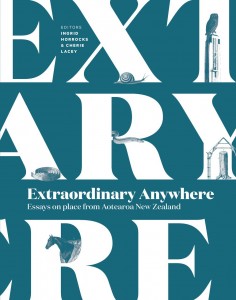 Congratulations, Ingrid, co-author of this new book ‘Extraordinary Anywhere’. A wonderful achievement!
Congratulations, Ingrid, co-author of this new book ‘Extraordinary Anywhere’. A wonderful achievement!
Youth Justice Play Sparks Debate
Youth justice has been put under the spotlight in a new stage show by a group of Massey University Creativity in the Community students at Wellington campus.
The production comes at a time when the Government is considering whether or not to raise the age of New Zealand’s Youth Court jurisdiction, and has sparked lively debate.
See more via this TV3 video: http://www.newshub.co.nz/entertainment/play-examines-realities-of-youth-in-adult-justice-system-2016060923#ixzz4BVE5ThG7
The play has also sparked discussion of the issues on Radio New Zealand’s The Panel.
Hear more via this podcast: http://www.radionz.co.nz/national/programmes/thepanel/audio/201804313/age-of-adult-criminal-responsibility
JustUs takes justice to the stage
Audience members have described the premiere of JustUs, a new verbatim theatre work created by Massey University Creativity in the Community students as “powerful” and “fantastic”.
The original work, which was developed in collaboration with JustSpeak, a youth-led justice advocacy charity, was staged for the first time in Wellington today (June 1), and will return for two more performances, on June 3 and June 9.
The 40 minute one-act production combines film and live theatre to trace the journeys of two brothers through the NZ criminal justice system. It resulted from the Massey expressive arts students’ work with JustSpeak to understand the differences in life outcome for 16-year-olds, who can access Youth Court processes, and 17-year-olds, who are tried in the adult court system. From a series of guest lectures, the students workshopped creative concepts then developed an original script.
The staging of the work is timely, with the government currently considering whether to raise the youth court age. Principal Youth Court Judge Andrew Becroft has recently described New Zealand’s youth justice age of 17 as “an enduring stain on New Zealand’s otherwise
good youth justice record.”
While New Zealand’s youth justice system was considered internationally to be “pioneering in its approach”, it had a long way to go, Judge Becroft said.
JustUs aimed to present that ‘long way to go’ concept through theatre, to reach out to an audience beyond those directly connected with the justice system and, through creativity, engage more people in considering the impact on broader society of our justice approach to youth offending.
The dialogue in the piece is predominately taken from direct interviews the class were able to have, through working via JustSpeak, with youth offenders and the community workers who support them. While the speech and context are real, the students then created a fictional dramatic structure around that dialogue featuring two brothers whose only difference is age, with their upbringing, culture and crime identical.
Course coordinator, Associate Professor Elspeth Tilley, also invited established creative artists who have worked in prisons and on justice issues to talk to the class about how to apply creativity to challenging and sensitive topics. Playwrights William Brandt and Jo Randerson, and author Pip Adam, all of whom have extensive experience teaching creative writing in prisons, were among those who helped the students by providing specialist creative guidance.
Audience members’ written feedback after the first performance included “Fantastic performance, really powerful and wonderfully performed. Thank you so much, and well done to all the cast and crew,” and “That was truly awesome – had tears in my eyes.” Another said “What a great performance. I was so impressed. It was fantastic.”
JustUs returns to the stage on June 3, 2016 at 7pm as part of the Wellington Expressive Arts Students’ End of Semester Showcase and on June 9, when it will begin at 6.30pm, be held at a larger venue in downtown Wellington and followed by a speaker panel and community forum. All welcome. Entry at the final performance will be by koha to support the advocacy work of JustSpeak.
To receive updates join the Facebook event for the June 9 event at https://www.facebook.com/events/604959266344766/
Please say hi to us on our social media!
 The School of English & Media Studies has joined Twitter! If you’re an EMS student, graduate or simply interested in creative writing, theatre, English literature, media studies, communication, academic writing and the diverse research associated therewith, and you tweet, please get in touch with us at @SEMSMassey and tell us what you’re up to – we’d love to connect with you.
The School of English & Media Studies has joined Twitter! If you’re an EMS student, graduate or simply interested in creative writing, theatre, English literature, media studies, communication, academic writing and the diverse research associated therewith, and you tweet, please get in touch with us at @SEMSMassey and tell us what you’re up to – we’d love to connect with you.
We’ve also been on Facebook for a while now and you can check us out at https://www.facebook.com/theschoolofenglishandmediastudiesatmassey/
Feel free to tag, message or post/tweet us on either or both if there’s something you’d like to know or something you think we should be sharing on our pages.
Research Roundup
We’ve been busy. Here’s a snapshot of some of the research that’s come out of the School in the first four months of 2016.
Three staff books!
Dr Pansy Duncan had a book published: The Emotional Life of Postmodern Film. Routledge, 2016.
Dr Jenny Lawn, J. had a book published: Neoliberalism and cultural transition in New Zealand literature, 1984-2008: Market fictions. Lanham, MD: Lexington Books, 2016.
Dr Allen Meek had a book published: Biopolitical Media: Catastrophe, Immunity and Bare Life. Routledge, 2016.
A number of exciting articles and book chapters by English and Media Studies staff
Dr Rand Hazou co-authored an article: ‘E(Lab)orating Performance: Transnationalism and Blended Learning in the Theatre Classroom’, Research in Drama Education 20.4. 1 December.
Dr Jenny Lawn co-edited a special journal issue on Neoliberal Culture/The Cultures of Neoliberalism: Sites: A Journal of Social Anthropology and Cultural Studies 12. 1. She also wrote the introduction: ‘Introduction: Neoliberal culture/the cultures of neoliberalism’. Sites 12.1, pp. 1-29.
Dr David Gruber had an article published: ‘The extent of engagement, the means of invention: Measuring debate about mirror neurons in the humanities and social sciences’. Journal of Science Communication 15.2, A01. (February 2016).
Dr Nicholas Holm had an article published: ‘Humour as edge-work: aesthetics, joke-work and tendentiousness in Tosh.0’, Comedy Studies 7.1 (2016)
Dr Simon Sigley had an article published: ‘Programming (Bi)Cultural Memory: Remembrance, reinvention, and Commemorative Vigilance at the Film Archive, Ngā Taonga Sound & Vision’, Reconstruction: Studies in Contemporary Culture 16.1 (2016). http://reconstruction.eserver.org/Issues/161/Sigley.shtml
Dr Philip Steer had an essay published: ‘Colonial Gothic’, in The World Novel until 1950, ed. Ralph Crane, Jane Stafford, and Mark Williams (Oxford: Oxford University Press, 2016).
Staff presentations both local and international
Dr Kevin Glynn presented: ‘Costeño Media: Struggles for the Meanings of Blackness and Indigeneity on Nicaragua’s Caribbean Coast’, at ‘The Meaning of Blackness II’, International Conference, University of Costa Rica, 15 – 18 February.
Dr Kevin Glynn also presented: ‘Proliferating Nicaraguan Mediascapes: The FSLN, indigenous rights and media convergence’, at the Association of American Geographers (AAG) Annual conference, San Francisco, USA, 29 March – 2 April.
Dr Alex Bevan presented: ‘Unglamorous Work: Media Labor’s Discontents’ and was a panel chair at the ‘Society for Cinema and Media Studies Conference’, Atlanta, USA, 30 March – 3 April.
Dr Thom Conroy and Dr Ingrid Horrocks were panellists at the Ruapehu Writer’s Festival, Ohakune, 17 – 21 March. Thom spoke on a panel on ‘Fiction and Biography’ and Ingrid on one on ‘The Desert Road’, and on a special panel convened to discuss her forth-coming co-edited collection: Extraordinary Anywhere: Essays on Place from Aotearoa New Zealand.
and
The School hosted presentations on various campuses as part of the W.H. Oliver Research Academy Research Series
Friday Feb 26 Massimiano Bucchi, Newton’s Chicken. Communicating Science in the Kitchen
Friday 22 April Nicola Legat, “Will you publish, um, books?” The first six months of the new Massey University Press and how it can support Humanities.
Friday 29 April Leleiga Taito, An in-depth ethnographic study of the values, communication norms and safety attitudes of snowboarders. This was part of her BC Honours Research. Ms Taito received a GNS Science Scholarship and a College Summer Scholarship to produce a detailed written report and a series of video outputs.
Friday 6 May Kyle Powys Whyte, Indigenous Peoples and Climate Change: Basic Issues.
Tthe full programme and recordings of some of the seminars are available on the School of English and Media Studies website.
Lahar awareness research will help save lives – Massey University
Many skiers and snowboarders on Mt Ruapehu do not know how to get to safety if a potentially deadly lahar came rampaging down the mountainside, research from Massey graduate Leleiga Taito shows.
Source: Lahar awareness research will help save lives – Massey University
Many skiers and snowboarders on Mt Ruapehu do not know how to get to safety if a potentially deadly lahar came rampaging down the mountainside, research from Massey graduate Leleiga Taito shows.
It is believed to be the first international research that has documented a disconnect between safety information about lahars (the volcanic flow of ash, snow and rocks) and the key 18-30 year-old age group of young adventure sport enthusiasts.
“Many people didn’t know what a lahar is, or that they may have less than two minutes from the warning siren to escape,” Ms Taito says.
The Upper Hutt woman, who is the first in her family to graduate from university, will be conferred with a Bachelor of Communication honours degree (First Class) at the Michael Fowler Centre on Thursday.
Her research, investigating barriers at Whakapapa ski field that may be stopping young people from following safety instructions, was partly made possible by the awarding of a GNS Science scholarship arranged in partnership with Massey’s School of English and Media Studies and the Joint Centre for Disaster Research. It is hoped Massey students will help to develop further resources based on Ms Taito’s research to address the issue in the future.
There are plans also for Ms Taito’s findings to be used by GNS Science, the Department of Conservation and Ruapehu Alpine Lifts to communicate better with young skiers and snowboarders.
Twice-yearly tests of the Eruption Detection System over the past five years showed up to 50 people per test failed to get out of the valleys. Those people were asked to fill in a survey, which showed some didn’t know they were in danger zones, or thought they had traversed high enough out of the valleys to be out of danger.
Ms Taito had only ever been on the snow once, joking: “Samoans don’t do snow”. She spent three months working for the ski lift operator while living at Whakapapa village at Mt Ruapehu last winter. Describing herself as a “Samoan population of one”, she conducted in-depth research observing the behaviour of 257 mountain users and interviewing 29 of them about their awareness of lahar risk.
She found the sub-culture of young experienced snowboarders and skiers have their own lingo and use euphemisms that normalise crashing and unsafe behaviour on the mountain. They deal with serious situations such as accidents, hazards and emergencies using humour and friendly teasing.
“Skiing is such a hazardous sport and they become desensitized to the danger factor. They are there to have fun and don’t want to think about anything happening- they call it a buzz kill. Anti-authoritarian framing is the norm for a subculture such as adventure sports enthusiasts,” she says.
The research participants offered a range of safety suggestions, including better locational identification on trail maps and creating a cellphone app that provides safety information.
Ms Taito attended a pre-season briefing with emergency service staff from the mountain to share her insights. Her recommendations include better signage and using digital technology to inform and remind people they are on an active volcano and what to do when the lahar warning siren sounds.
“Young skiers and snowboarders’ love of speed could also be turned into a positive communication feature,” she says.
Safety communications could tap into their own group values by featuring a great skier speeding down the mountain contrasted with the speed of a lahar to show that nobody can outrun a lahar.”
After five years of study at Massey, Ms Taito is looking forward to visiting family in Australia, going back to the mountain to see her new snow buddies and looking for her first permanent communications’ job. But first of all there is going to be a big party this week when her large family celebrates her graduation. And she hopes to get her family up to the snow this ski season.
Creative Activism for Highschool Students
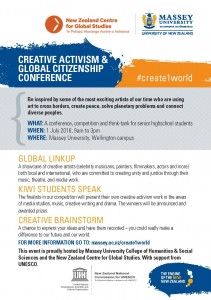 Inspired by our innovative Expressive Arts curriculum and its focus on ‘performing the change you want to see’, Massey University College of Humanities & Social Sciences and the New Zealand Centre for Global Studies are proud to present #create1world, the first Creative Activism & Global Citizenship initiative in New Zealand.
Inspired by our innovative Expressive Arts curriculum and its focus on ‘performing the change you want to see’, Massey University College of Humanities & Social Sciences and the New Zealand Centre for Global Studies are proud to present #create1world, the first Creative Activism & Global Citizenship initiative in New Zealand.
This conference, competition and think-tank for senior highschool students will be held from 9am to 3pm, on July 1, 2016, at Massey University’s Wellington campus.
If you are in Year 11, 12 or 13, we invite you to first of all to enter our competition. It aligns with NCEA for Media Studies, English, Drama and Music so we’re sure there will be a category that you can enter.
Then, come along to the conference day on July 1, and be inspired by some of the most exciting artists of our time, and hear about their work using art to cross borders, create peace, solve planetary problems and connect diverse peoples.
The day will kick off with a global linkup showcasing creative artists (celebrity musicians, painters, filmmakers, actors and more) both local and international, who are committed to creating unity and justice through their music, theatre, and media work.
Then we’ll hear from Kiwi students – the finalists in our competition will be invited to present your own creative activism work in the areas of media studies, music, creative writing and drama, and we’ll announce winners and award prizes.
Finally, join a creative brainstorm where your ideas are heard and recorded – you could really make a difference to our future and our world.
See more detail at our website massey.ac.nz/create1world
You can also follow us on Twitter at https://twitter.com/team1world or Facebook at https://www.facebook.com/create1world/
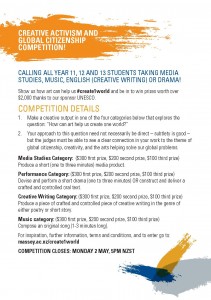 We look forward to seeing your creative entries and to welcoming you to the #create1world discussion on July 1.
We look forward to seeing your creative entries and to welcoming you to the #create1world discussion on July 1.
